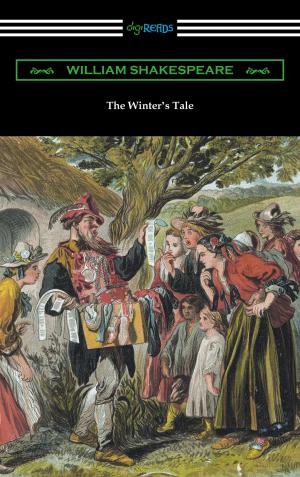| Author: | Friedrich Schiller | ISBN: | 9781596259195 |
| Publisher: | Neeland Media LLC | Publication: | December 15, 2009 |
| Imprint: | Digireads.com Publishing | Language: | English |
| Author: | Friedrich Schiller |
| ISBN: | 9781596259195 |
| Publisher: | Neeland Media LLC |
| Publication: | December 15, 2009 |
| Imprint: | Digireads.com Publishing |
| Language: | English |
Friedrich Schiller (1759-1805) is one of the most influential German playwrights of the 18th century. His persistence as a poet, philosopher, and translator only broaden his popular reach. Along with Goethe, Schiller shaped the development of Weimar Classicism, a literary and aesthetic movement that integrated Romantic, Classical, and Humanist traditions. This edition collects a total of four plays—"The Robbers" and the "Wallenstein" trilogy. Together these works display Schiller's wide range. His first play, "The Robbers" (1781), propelled Schiller into the spotlight. It follows two aristocratic brothers, Franz and Karl Moor, as they vie for their father's validation. The melodrama that ensues is charged with intense emotion, making it a perfect example of the Sturm and Drang (Storm and Stress) movement of Weimar Classicism. The brothers' dramatic conflict leads to a gradual moral collapse, leaving the audience questioning pride, justice, and rivalry. The "Wallenstein" trilogy, completed in 1799, includes "The Camp of Wallenstein," "The Piccolomini," and "The Death of Wallenstein." The trilogy follows the rise and fall of the famed general Albrecht von Wallenstein as he commands the Habsburg troops during the Thirty Years' War. As the trilogy unfolds, the reader becomes increasingly intimate with the psychology of this complex leader. Schiller remains hugely influential and this collection of noted plays demonstrate his command of the drama and his indispensible contributions to world literature.
Friedrich Schiller (1759-1805) is one of the most influential German playwrights of the 18th century. His persistence as a poet, philosopher, and translator only broaden his popular reach. Along with Goethe, Schiller shaped the development of Weimar Classicism, a literary and aesthetic movement that integrated Romantic, Classical, and Humanist traditions. This edition collects a total of four plays—"The Robbers" and the "Wallenstein" trilogy. Together these works display Schiller's wide range. His first play, "The Robbers" (1781), propelled Schiller into the spotlight. It follows two aristocratic brothers, Franz and Karl Moor, as they vie for their father's validation. The melodrama that ensues is charged with intense emotion, making it a perfect example of the Sturm and Drang (Storm and Stress) movement of Weimar Classicism. The brothers' dramatic conflict leads to a gradual moral collapse, leaving the audience questioning pride, justice, and rivalry. The "Wallenstein" trilogy, completed in 1799, includes "The Camp of Wallenstein," "The Piccolomini," and "The Death of Wallenstein." The trilogy follows the rise and fall of the famed general Albrecht von Wallenstein as he commands the Habsburg troops during the Thirty Years' War. As the trilogy unfolds, the reader becomes increasingly intimate with the psychology of this complex leader. Schiller remains hugely influential and this collection of noted plays demonstrate his command of the drama and his indispensible contributions to world literature.















